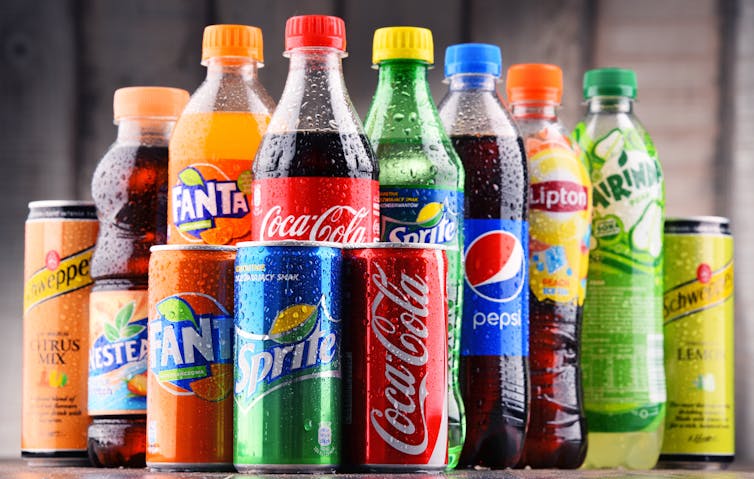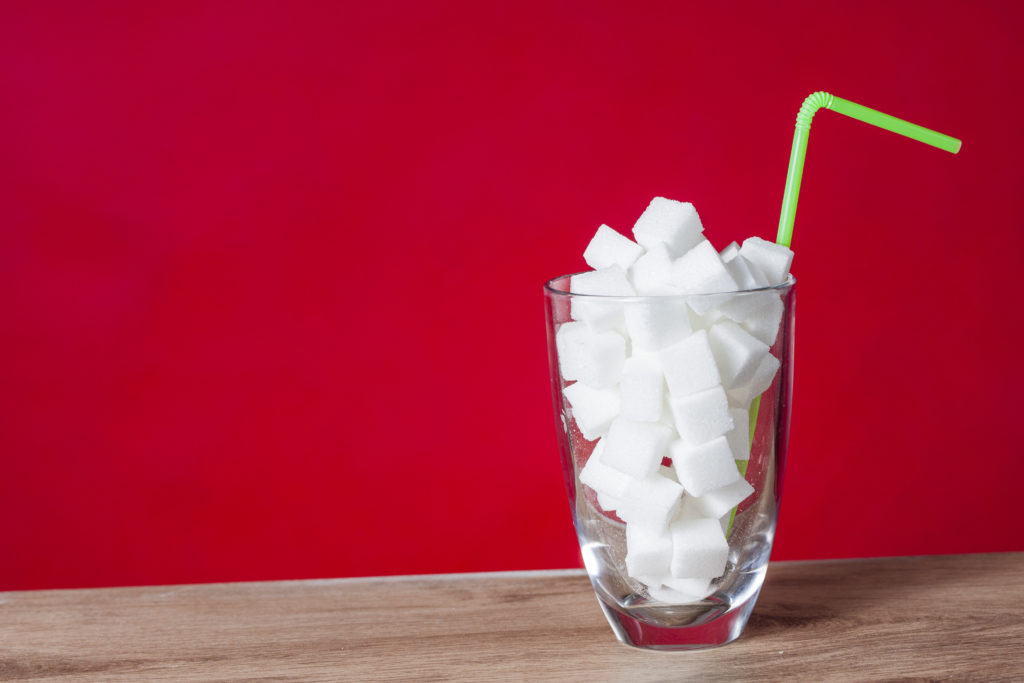If you like swigging sugary drinks, you might get a bit of a surprise next time you go to buy one, as a so-called sugar tax has now come into force in the UK.
From now on, drinks with a sugar content of more than 5g per 100ml will be taxed 18p per litre and 24p for drinks with 8g or more. It’s hoped the tax will help to reduce sugar intake, as scientists have shown that sugary drinks lead to weight gain and diabetes. Figures show that 58% of women, 68% of men and 34% of 10- to 11-year-olds in the UK are classed as overweight or obese.
Of course, a tax alone is not going to solve the obesity problem overnight. Sugary drinks may be a leading source of sugar in the UK diet, but they are not the only contributor to obesity. So while we are not going to see obesity prevalence crashing down anytime soon, what taxes can do is contribute to change.
How to reduce sugar
The UK sugar tax aims to incentivise sugar reduction in drinks. Because it is imposed on drinks over a certain sugar threshold, manufacturers have the option of lowering sugar levels to avoid the tax. This way, the government is sending a clear message to the industry: get your act together and get sugar down.
On this measure of success, we don’t have to wait for the tax to be implemented to know that it has had an effect. According to the the UK Treasury, over 50% of soft drinks manufacturers (including retailer own-brands) have already reduced sugar levels, responding to the stick of legislation. So much so, in fact, that the Treasury has downgraded its forecast of how much money the levy will bring in – still standing at an impressive £240m.
The taxes will also make a contribution to the funding of programmes designed to reduce obesity. Such “earmarking” of taxes is relatively rare, but in the UK the tax was introduced in the March 2016 budget with the explicit goal to “fund a doubling of the primary schools sports premium”.

Shutterstock
We know this approach is workable. In 2015, Jamie Oliver voluntarily imposed a 10p extra charge on the sugary drinks served in his restaurants, encouraging others to do the same. The proceeds were donated to The Children’s Health Fund. In the two and a half years since, the fund has given away £162,000 in grants to improve child health. And according to Sustain – the NGO that manages the fund – 146,000 children have benefited from improved access to drinking water, as a result of the extra charge.
Will it change what people buy?
The UK government has not made changing people’s dietary habits an explicit aim of the tax. But evidence from elsewhere does suggest people buy less when a tax comes into force. For example, in Mexico – which introduced a one peso per litre excise tax on sugary drinks in 2014 – purchases of taxed drinks fell by almost 8% in the following two years. Larger decreases were seen in households at the lowest socioeconomic level. And people also bought more of the untaxed drinks – notably water.
Read more:
What the world can learn from Mexico’s tax on sugar-sweetened drinks
In the Mexico case, however, we don’t actually know if people started buying fewer sugary drinks because of the price hike, or because of another reason. This is because the data simply measures the decline after the tax, not why the decline is happening. So while prices are likely to have a played a role, there could be another mechanism at work. It could be, for example, that the tax started a conversation, raised awareness, got the industry talking about what it would do in response, and stimulated other actions to reduce consumption.
The lasting measure of success
Getting people talking, even arguing, about the tax is also an important part in all of this. Is it fair, as it affects people who are poor more than the rich? Why do we need what is essentially a punitive measure to get industry to act? If we are against the idea, then what else would work better and can we prove it?
These questions are important because it’s when these conversations percolate through society, that norms can change. Less so-called nanny statism and more people working it out for themselves. Working out, perhaps, that producing and consuming a lot of sugary drinks is not normal at all, but something weird that should be relegated to the past.
An important measure of the success of the Soft Drinks Industry Levy, then, will be if it contributes to changing these norms – in industry and society. And if it does, it will help to contribute towards a healthier society and healthier people.
Corinna Hawkes, Professor of Food Policy, City, University of London
This article was originally published on The Conversation. Read the original article.
![]()

